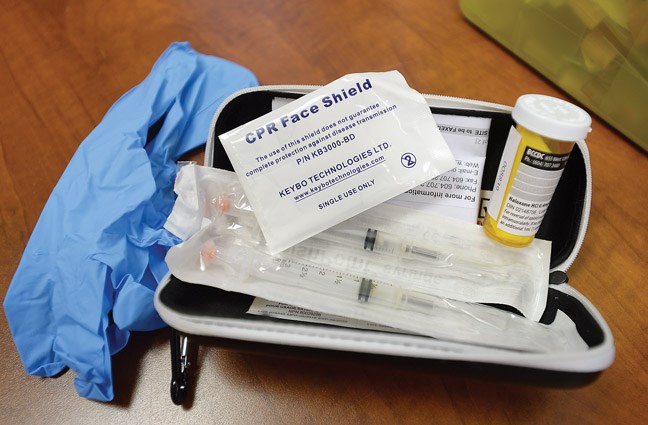Prince George was home to 46 drug-related deaths last year, according to numbers the B.C. Coroners Service released this week.
That's nearly double the 24 recorded in 2017.
"We are doing a lot and saving lives but it's still not sufficient to overcome the overwhelming impact of the extremely toxic drug supply that people are still turning to because they are still in pain and haven't got another alternative," Northern Health public health officer Dr. Andrew Gray said Friday.
"I'm feeling frustration and just grief that so many lives have been lost and so many friends and family members out there that, in some cases, have lost a lot of people that they're close to."
Province-wide, 1,489 people died from illicit drug overdoses in 2017. The highly potent and addictive opioid fentanyl was detected in 86 per cent of those deaths, according to the Coroners Service.
The numbers prompted B.C.'s mental health and addictions minister to join health officials to call for a safer drug supply to fight the rising overdose death toll while urging the federal government to open a "courageous conversation" on decriminalization.
Gray indicated support for the move.
"There is a safe supply of opioids out there, it's the pharmaceutical supply but the only way to access that is through a prescriber to prescribe it and a pharmacist to dispense it and there is a lot of restrictions on when people are allowed to prescribe opioids and what's considered appropriate," he said.
"And just the capacity of people to do that work with all of the other work that physicians and pharmacists have to do. It's not sufficient to displace the black market, which is what we need."
At the provincial level, Gray said more people are dying of overdoses than motor vehicle accidents, suicides and homicides put together. The rate of death by overdose is now also greater than that at the peak of the HIV epidemic in the late 1980s and early 1990s, he added.
Looking ahead, Gray said he sees a "greater discussion" of decriminalization and securing a safer supply.
"It doesn't seem to be right around the corner yet, but they seem to be more and more reasonable topics of discussion and options that are starting to be entertained," Gray said.
At 382, Vancouver remained home to the greatest number of such deaths, up slightly from 376 in 2017. Surrey was next at 210 deaths, followed by Victoria at 94, then Kelowna at 55 and Kamloops at 48, followed by Prince George.
However, at 92 per cent, Prince George saw the greatest increase from 2017 while Kelowna's actually fell by 20 deaths.

.png;w=120;h=80;mode=crop)

